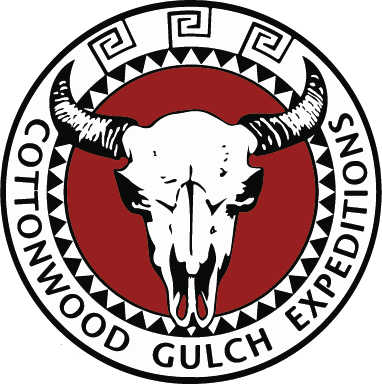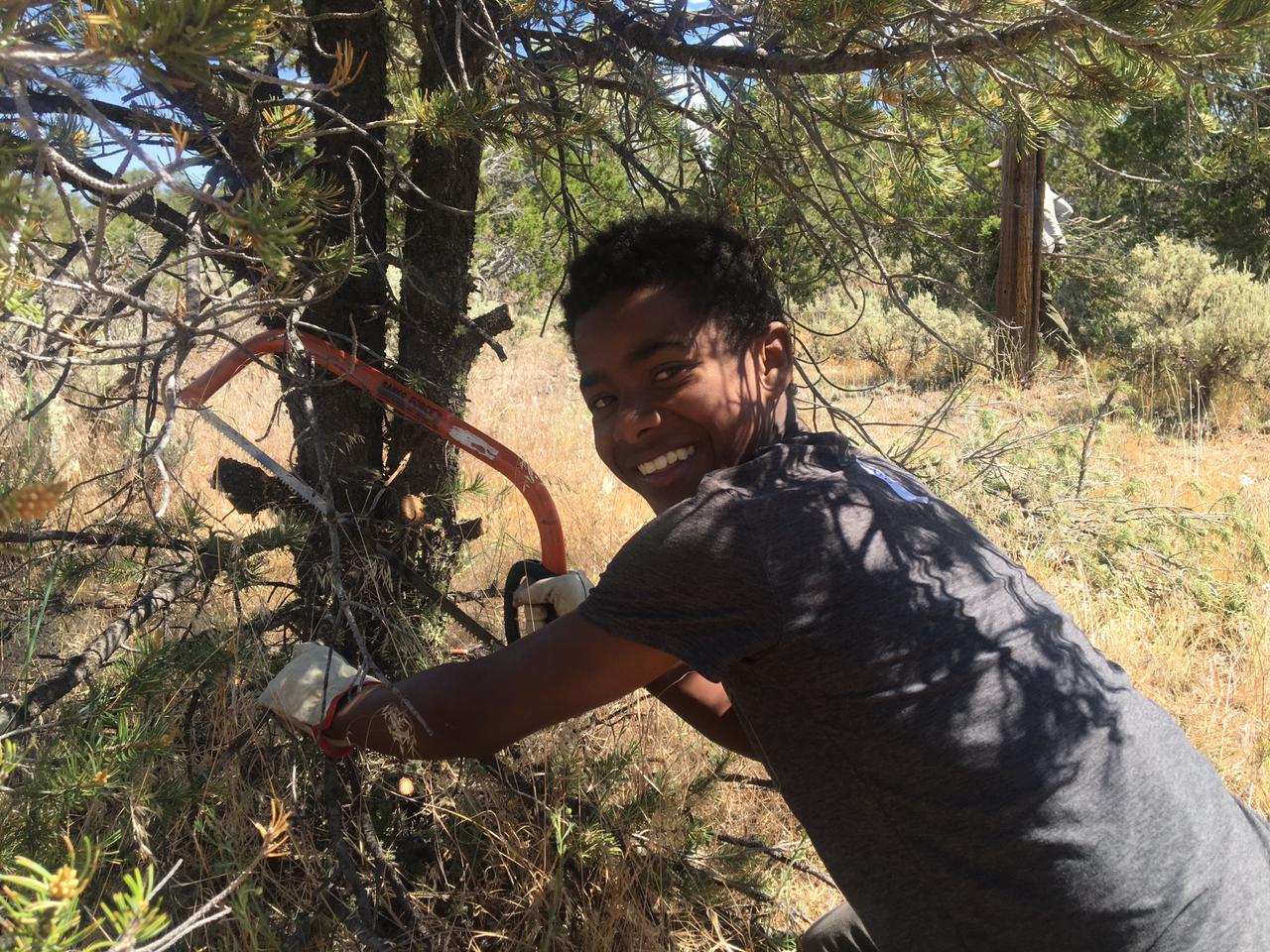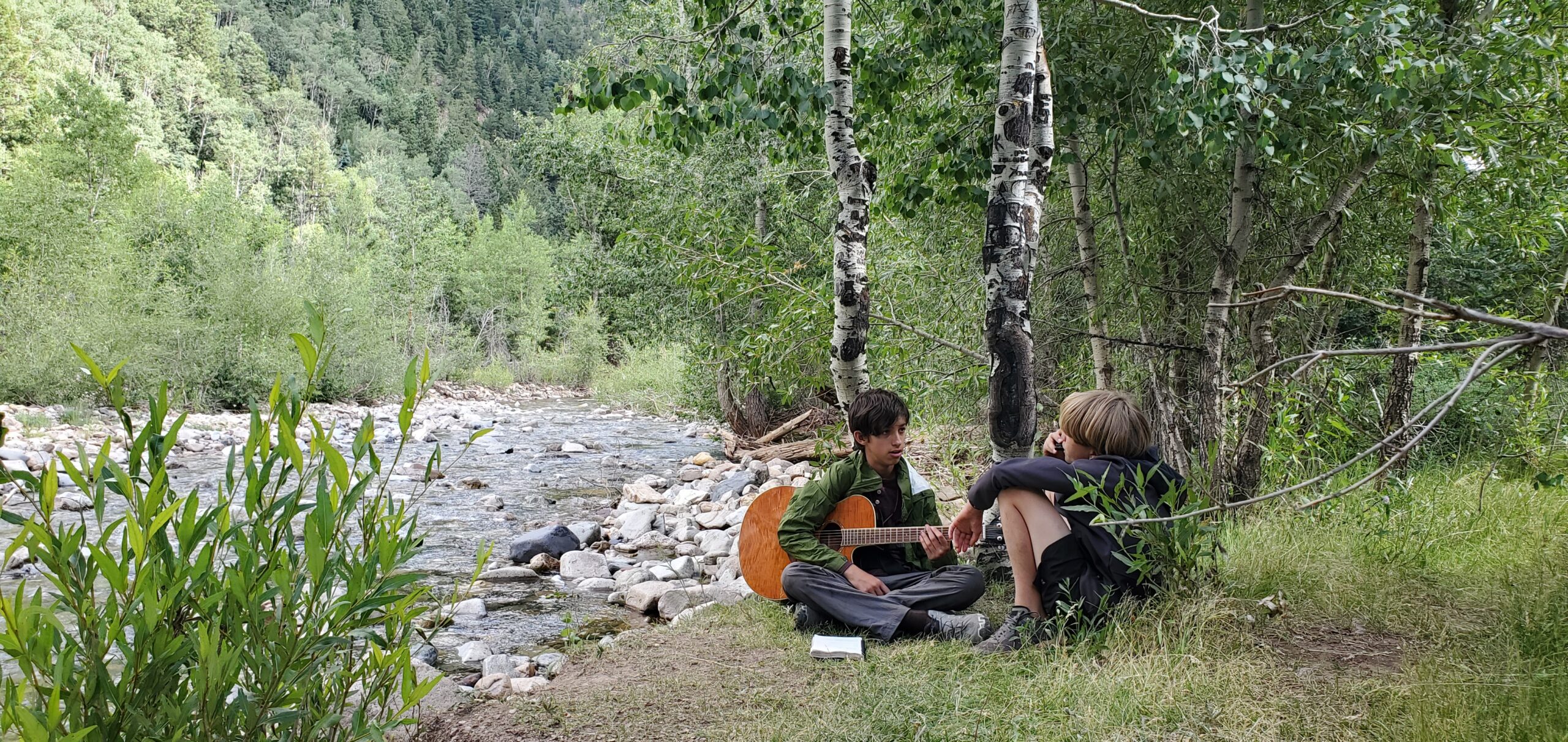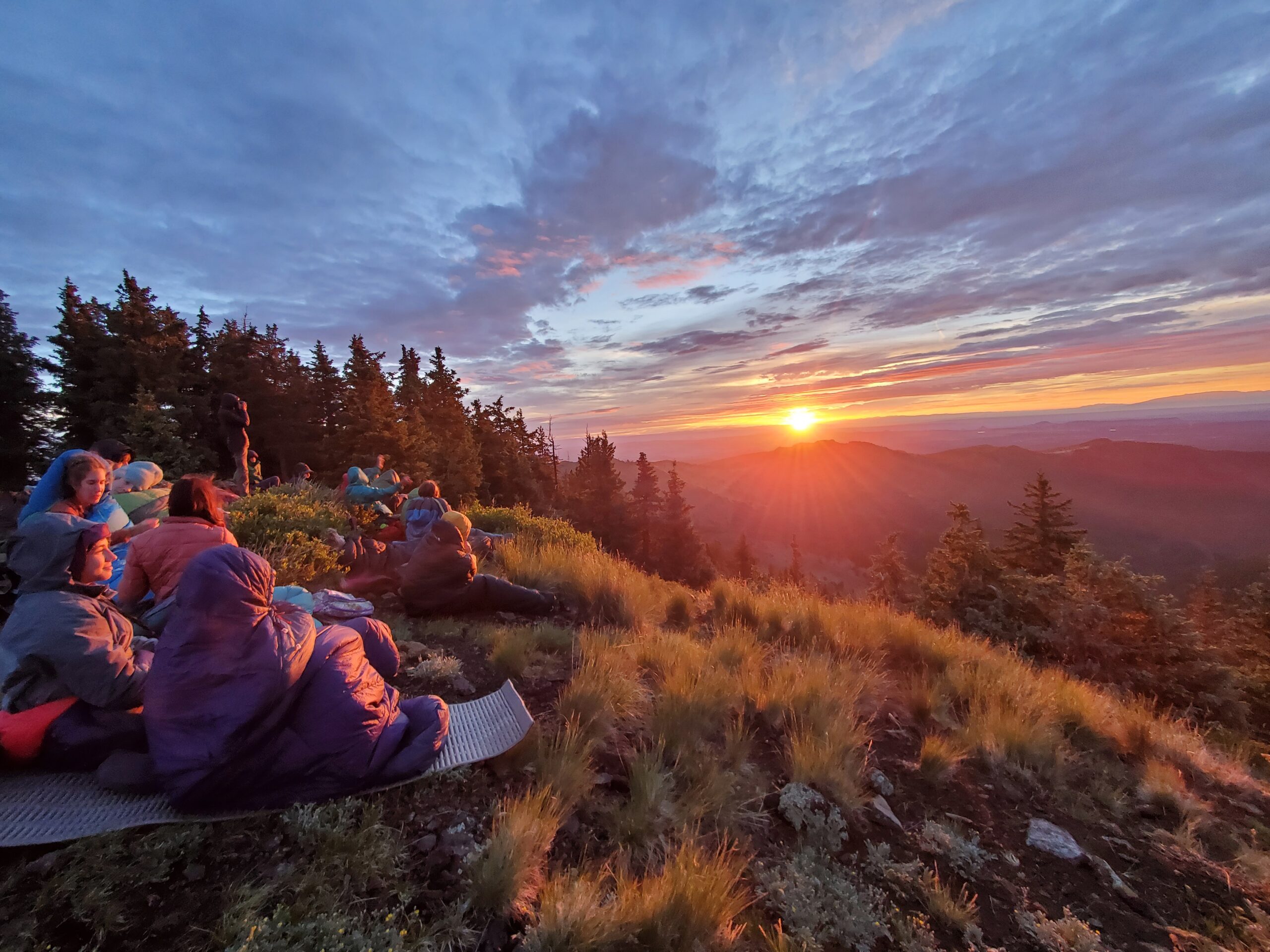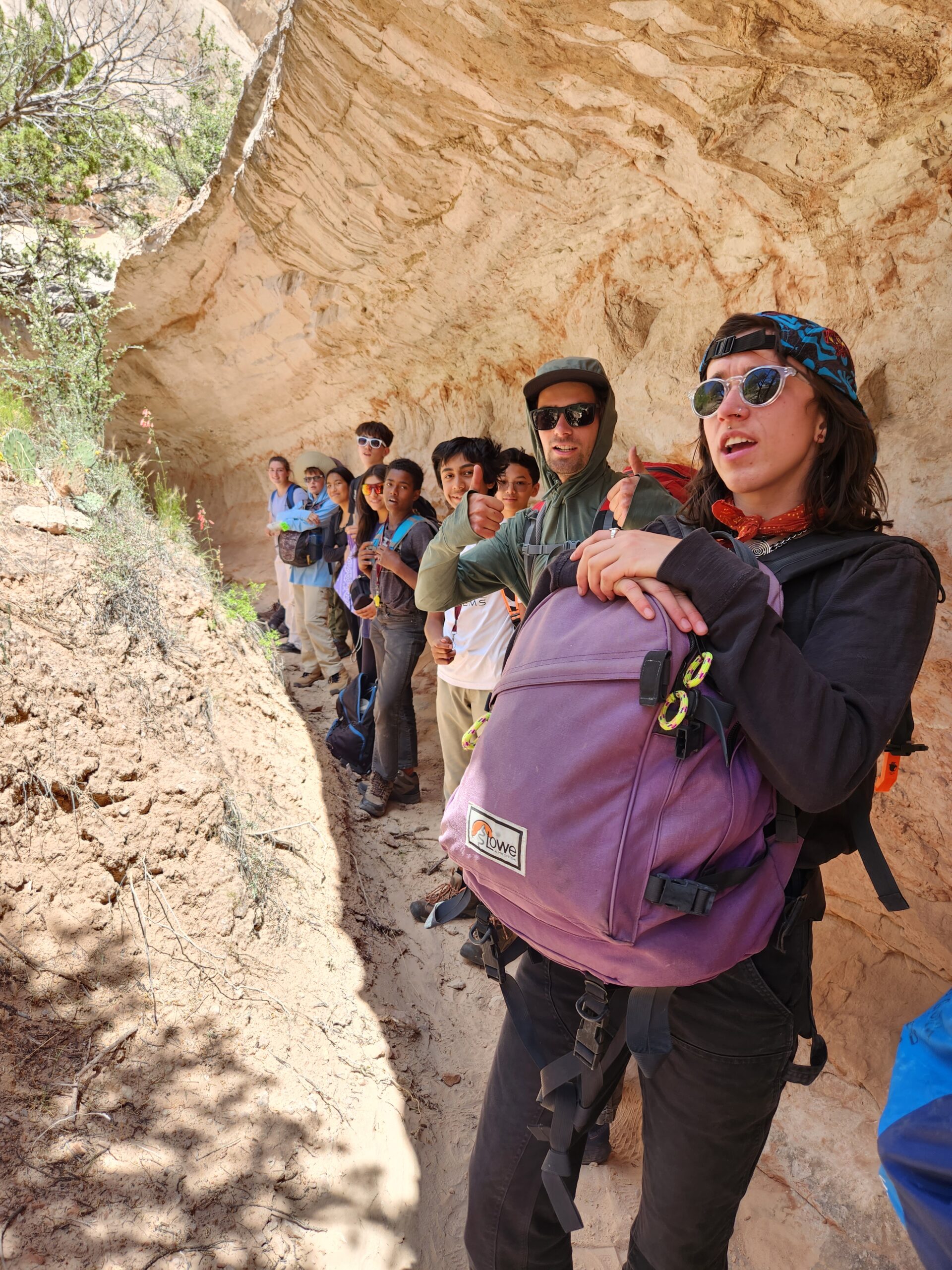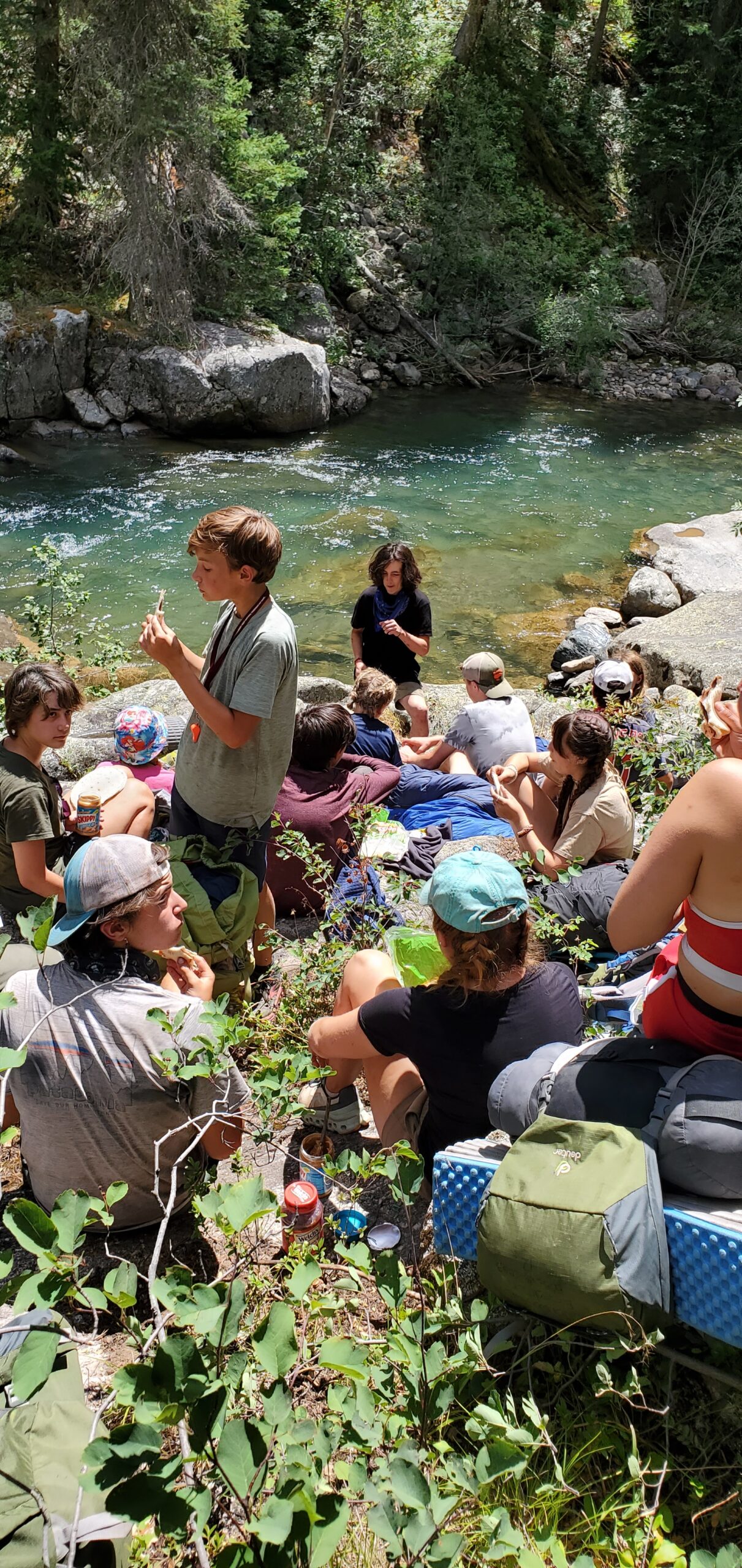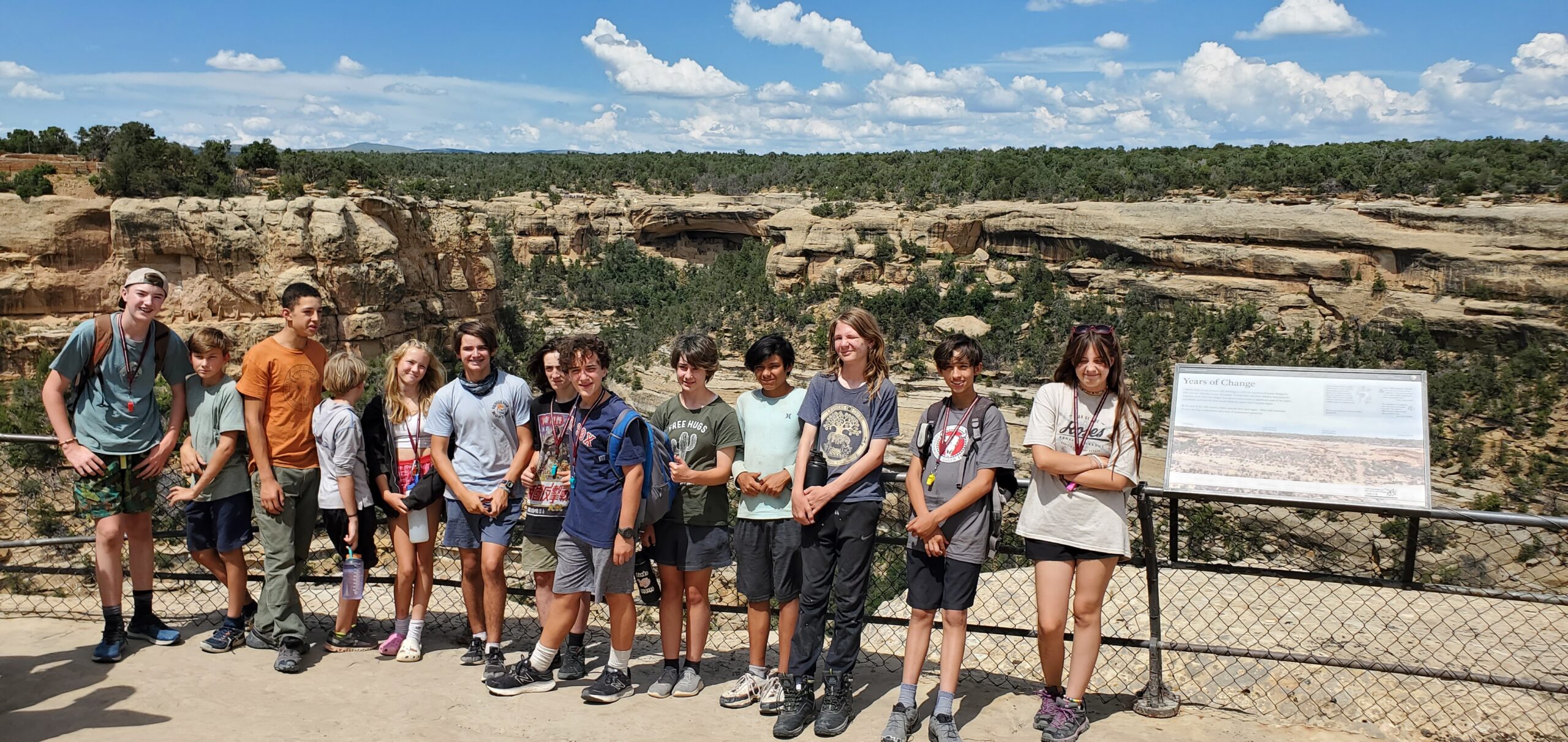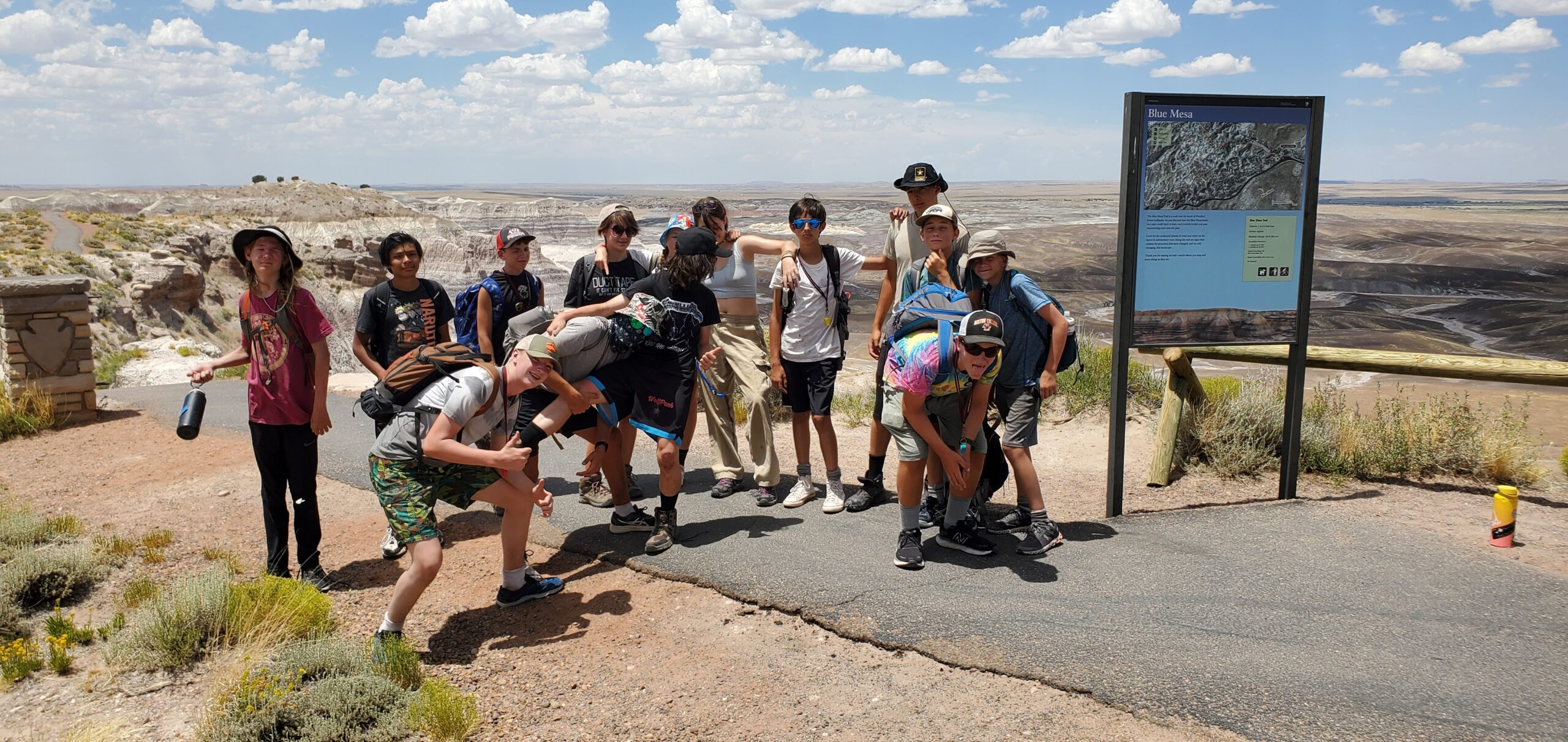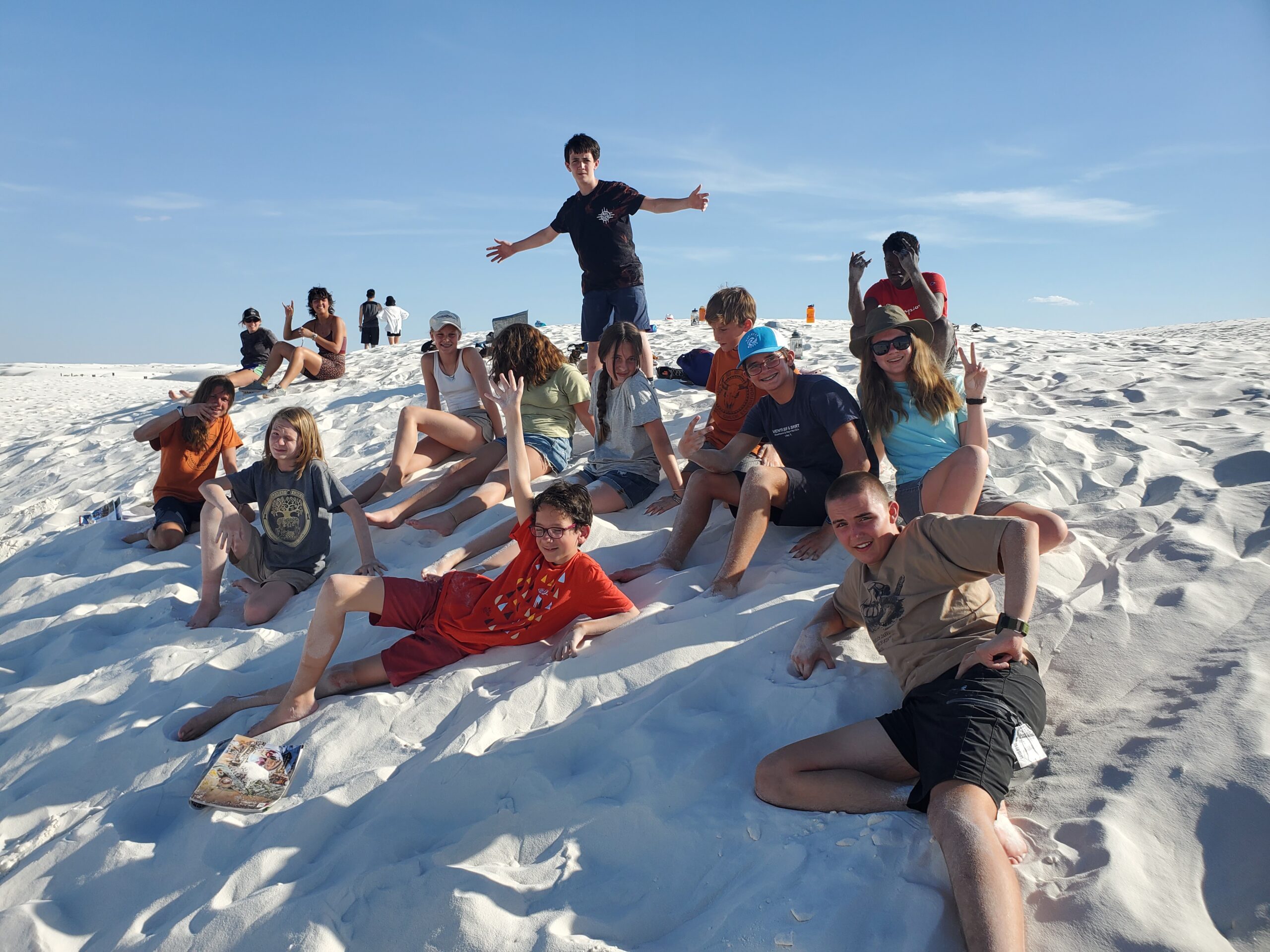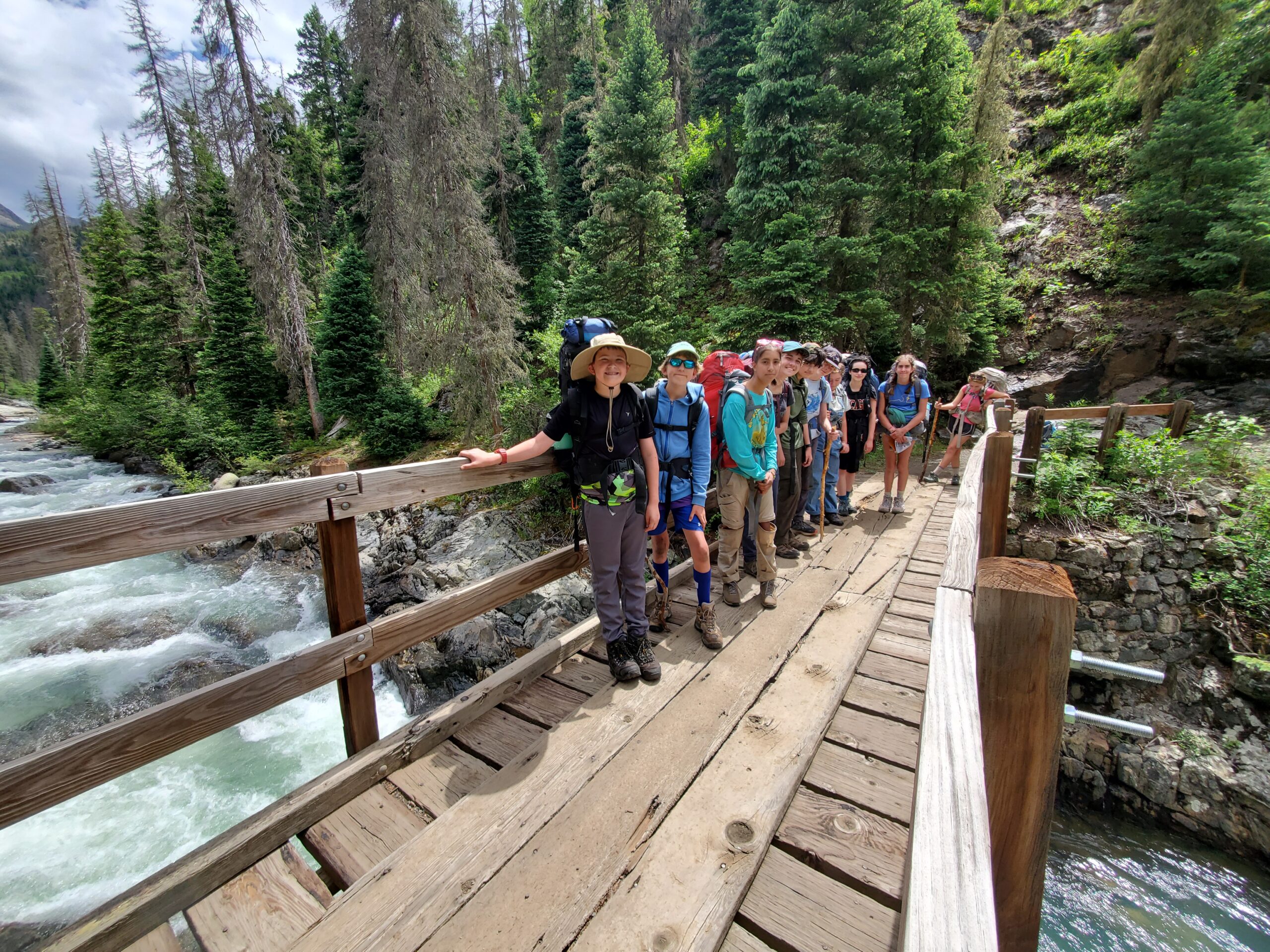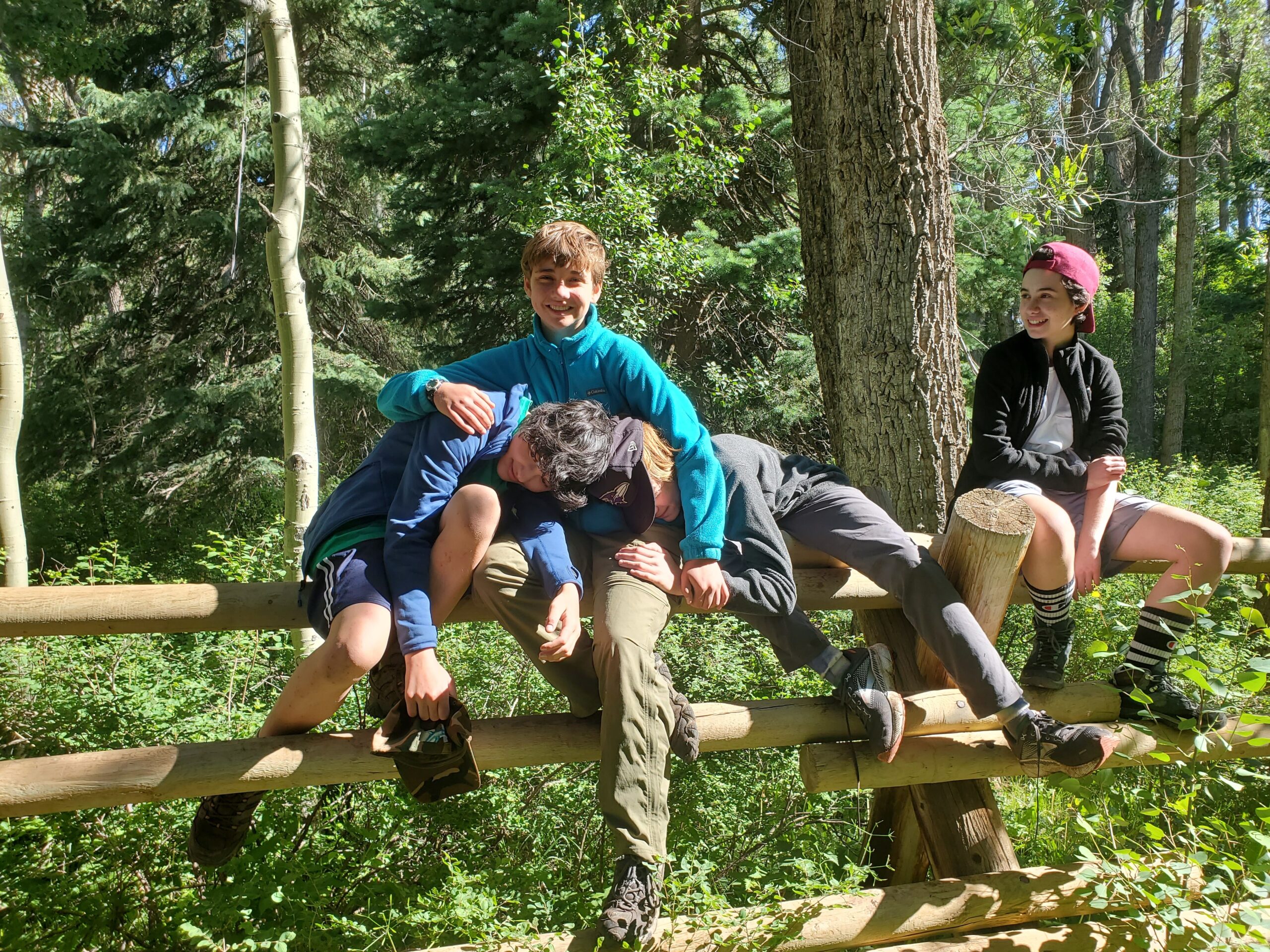Trek Details
People: Who We Are:
For wild-seeking, self-discovering, and adventure-inspired youth, Wild Country Trek is geared towards 13-15 year-olds who are excited to learn in the outdoors and challenge themselves in the Wilderness.
Future Stewards: WCT trekkers are guided by questions of stewardship and mindful connection to the places they visit. WCT asks:
- How do I care about people/places/community?
- How do I help the environment?
Adventurous and Creative Scientists: WCT trekkers are seeking adventure while on trek. On trek they must work together to solve problems, build critical thinking skills, and work on projects that combine elements of adventure, creativity and science in the field.
Places: Where We Go
WCT’s two road loops are split into a short itinerary that emphasizes introductions with the group and the unique ecosystems they encounter; and a longer visit to southern Colorado or Southern New Mexico that allows for more remote experiences and deeper discoveries. This is a pivotal shift in Gulch treks as WCT and older treks spend more time on the road then at Basecamp, fostering more independence and mindfulness in the field.
Basecamp: WCT spends about one week at our Basecamp, starting to step up as leaders for younger
trekkers and having opportunities to be guided/mentored by older trekkers. Basecamp provides a break from the rhythms of the road, and allows the group to settle into our rustic cabins, swim in the pool, and work with our specialists to practice new skills, and deepen their knowledge about the local cultural and physical geography.
On the Road: WCT spends about two weeks on the road, sharpening camping skills, visiting Gulch community members and learning about the southwest through a science-driven lens. Each day trekkers will share meals, set-up camp, and mindfully explore unique areas of the southwest. The start of the trip is spent exploring the outer reaches of the Zuni mountains, rock climbing, mountain biking, and/or navigating a technical slot canyon while getting to know the group through games and the daily regimen of camp life. For their second loop, WCT 1 spends even years in the San Juans of Southern Colorado, and odd years in the famed Gila National Forest area of southeastern New Mexico. Pending permits, forest fires, and other unforeseen circumstances, WCT upholds the opposite schedule.
In the Backcountry: Through short but challenging backpacking trips, WCTers are supported to carry only their most basic necessities. WCT 1 spends even years backpacking in the Weminuche and odd years in the Gila. WCT 2 does the opposite, pending permits, forest fires and other unforeseen circumstances.
Projects: What We Do
WCT provides an opportunity for 13-15 year olds to deepen their understanding of the spaces and people around them; to collaborate with their peers and hold each other accountable; and to deeply connect with
themselves in the outdoors. WCT introduces opportunities for trekkers to step into leadership roles, and play an active role in the environments they encounter.
Technical Skills Development:
- Backpacking skills: Trekkers will learn how to set up/take down backcountry camp, cook using Whisperlite stoves, navigate with a map and compass, and actively practice Leave No Trace in the field.
- Frontcountry skills: Trekkers will master details both on the road and basecamp, participating as active members of the group while on the road.
Introduction to Leadership:
- Lead a day hike: Trekkers will plan and lead a day hike themselves, preparing daypacks and planning logistics for the trip.
- Lead a adventure: Trekkers will collaborate with the Adventure specialist and Gulch staff to lead an adventure for our younger trekkers, to provide peer mentorship and share enthusiasm for some of the challenges they have overcome.
Action and Stewardship in the Field:
- Restoration projects: WCT trekkers will work on projects in the field which may include watershed restoration, removal of invasive species, one-rock-dam building and working on forest-fire burn sites.
Applied Science in the Field: Trekkers will work to collect data in the field, working with partners to collect water samples, soil samples and weather data.
